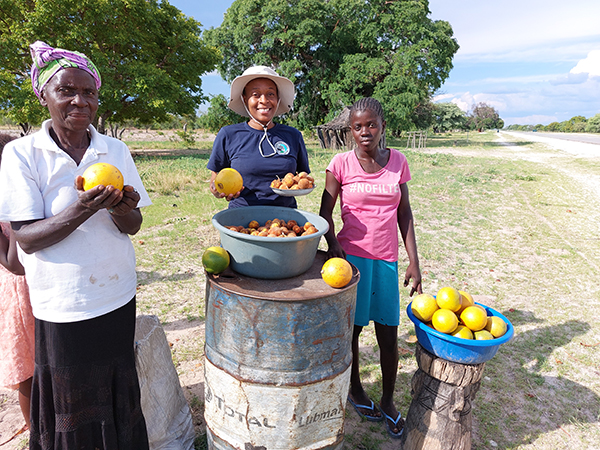Staff Reporter
The Cubango-Okavango River Basin (CORB) is a transboundary basin that comprises a network of watercourses flowing from Angola, through Namibia, and terminating in the Okavango Delta in Botswana. The basin sustains aquatic and terrestrial biodiversity, and is critical for the wellbeing of millions of people. The Permanent Okavango River Basin Water Commission (OKACOM) advises the three riparian states about how to best use the river’s natural resources.
The European Union (EU) is supporting the work of OKACOM through the Programme for Transboundary Water Management in the Cubango-Okavango River Basin. This five-year programme aims to strengthen governance, and promote the sustainable management of water and land resources in the basin. One specific objective of the programme is to strengthen land management through improved land use planning, the reduction of environmental degradation, and improved livelihoods. In addition, the EU Programme is establishing an online decision support system that aligns the three CORB Member States’ monitoring and management of water resources’ data and information.
In line with these objectives, the EU Programme appointed the Namibia Nature Foundation (NNF) to implement a sub-project of the programme aimed at diversifying income streams and food sources. The programme also increases knowledge around policies on land degradation and biodiversity loss; aims to halt the degradation of natural resources; and enhance the resilience of riverine communities to climate change.
“The NNF continues to work across Namibia. The Maurus Nekaro and Kapinga Kamwalye Conservancies, situated in the Kavango Region of northern Namibia, were identified as potential landscapes for the implementation of the sub-project,” said Frances Chase, Head of Projects at NNF.
As part of the sub-project, the NNF and the EU team held a handover ceremony of equipment to enable the sustainable harvesting of Non-Timber Forest Products (NTFPs). Two ceremonies were held, the first in Maurus Nekaro on 28 November 2022, and the second in Kapinga Kamwalye on 29 November 2022. The equipment included 100 knives (used in the sustainable harvesting of Devil’s Claw), 100 axes (used in the harvesting and cracking open of Manketti nuts), 800 polypropylene woven bags, 400m of shade netting, and 200 needles and thread (used to gather, dry and present the products for marketing purposes). The equipment is valued at approximately N$100 000, and is intended to support 100 harvesters in each conservancy.
In addition, clothing and foot gear for fish guards who patrol the riverfront of their conservancies as well as two large maps were handed over. The maps will assist with better spatial planning and management of activities within the conservancies.
“This equipment, together with training in sustainable harvesting methods, is envisioned to support the development of a value chain to improve income protection for Namibian communities in the future,” said Dr Maryna Storie – EU-OKACOM. Overall, the donation is meant to enable asset-based community development, ownership and empowerment at grassroots level.
The EU-OKACOM Programme was represented by Storie and Catherine Pringle, while the NNF was represented by Frances Chase and Alice Limani Poniso. Faustinus Kamwanga, Deputy Director from the Ministry of Agriculture, Water and Land Reform, Division of Land Reform, also participated.
The Namibia Nature Foundation is a registered non-governmental organisation founded in 1987. It is a charitable and funding institution with an independent board of trustees. The foundation initiates, supports and promotes activities that conserve the environment, protect biodiversity and foster the sustainable and ethical use of natural resources.


